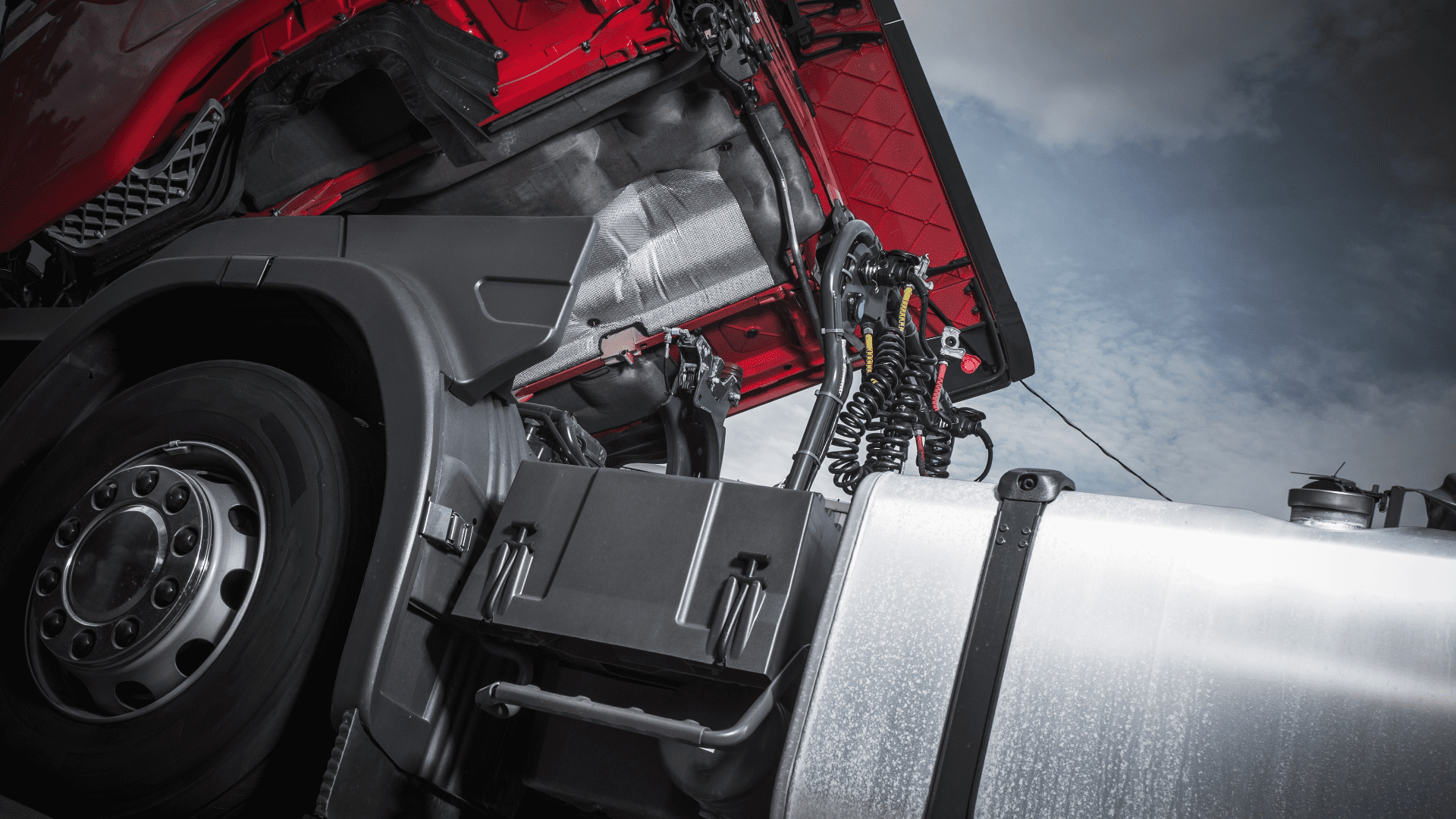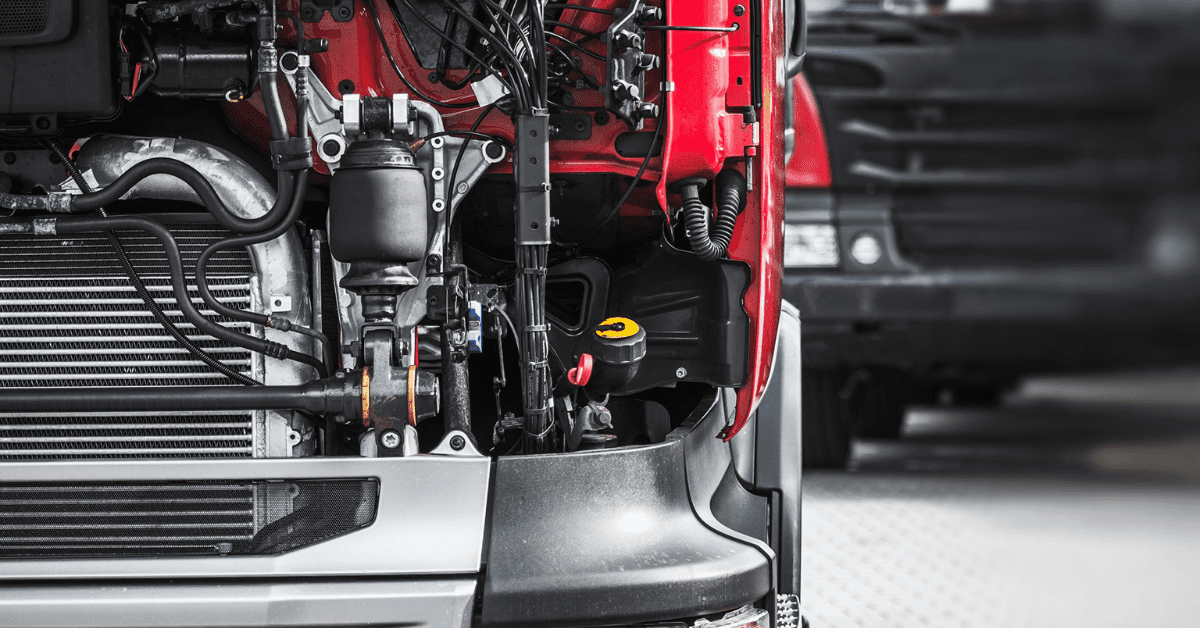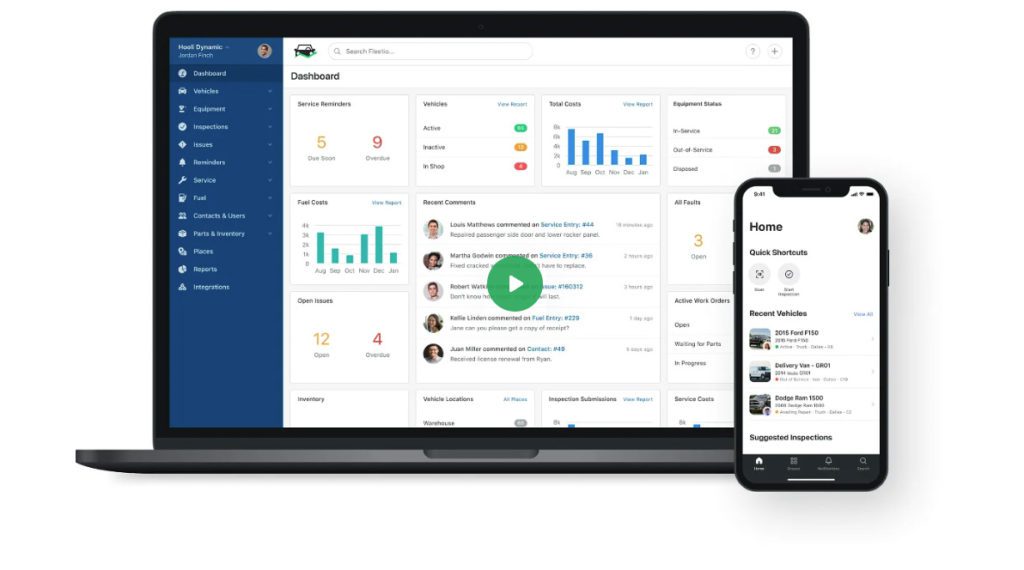Top 10 Misconceptions: Fleet Vehicle Oil Changes
Oil changes are one of those maintenance items that ensure the longevity and optimal performance of your fleet vehicles. Seemingly simple, fresh oil and filters are the lifeblood of any vehicle, especially those that rack up miles when used daily by businesses.
Going too long between oil changes can lead to more expensive issues like warped cylinder heads, cracked engine blocks, and even total engine replacement.
Working with a trusted fleet mechanic for oil changes can help you establish an optimal maintenance schedule for your fleet vehicles.
In the meantime, let’s break down 10 of the most common misconceptions about fleet vehicle oil changes to get you started.
1 – More Frequent Oil Changes are Always Better
While regular oil changes are essential, changing oil too frequently might not provide significant benefits. It’s also a waste of money and resources to change your fleet’s oil and filters before it’s truly needed.
You should follow the manufacturer’s recommendations for your fleet vehicles. Also consider factors such as vehicle usage, oil type, and operating conditions before deciding on oil change intervals.

2 – Synthetic Oil Lasts Forever
Synthetic oil has a longer lifespan than conventional oil. However, that doesn’t mean it’s immortal. It can still break down over time and with heavier use, compromising the health of your fleet vehicle’s engine and coolant system.
Regular oil changes are necessary, even with synthetic oils, to ensure proper engine protection and performance. Your fleet mechanic can recommend the best intervals for service.
3 – Any Oil Works in Fleet Vehicles
Not all engine oils are created equally. Using the wrong type of oil or viscosity of oil can lead to engine damage that requires expensive repairs.
Incorrect oil type or grade also decreases the performance of your vehicles and reduces their fuel efficiency. Always use oil that meets the manufacturer’s specifications.

4 – Oil Color Determines the Condition
This is a misconception based on partial fact. Yes, the color of your oil can indicate there’s a problem. However, it’s not a reliable way to determine if your engine is healthy or whether the oil is nearing the end of its lifespan and needs changing.
Fresh oil is amber in color. However, it darkens quickly as it collects contaminants. Conducting an oil analysis is a more effective way to determine the oil’s condition.
5 – Changing the Oil Filter is Enough
Oil changes can eat into your vehicle maintenance budget, especially if you have a large fleet to maintain. It might seem tempting to replace only the filter instead of the oil and the filter, but we never advise this shortcut.
Changing the oil filter is important, but a fresh filter can’t protect your fleet’s engines from degraded oil. Over time, even the highest quality synthetic oil breaks down, losing its ability to protect the engine. To avoid more expensive repairs in the future, never skip changing the oil when you change the filter.
6 – Higher Viscosity Oil is Better for Heavy-Duty Vehicles
This is another one of those misconceptions that might seem like a good idea. If you have a fleet of heavy-duty vehicles, you might buy into the notion that the higher the viscosity, the greater the protection.
Higher viscosity oil can hinder the flow and lubrication in colder temperatures. Always follow the manufacturer’s recommendations (or those of your fleet mechanic) before choosing an oil viscosity.

7 – Oil Additives Can Replace Regular Oil Changes
Just like a fresh filter can’t substitute for replacing the oil, using oil additives isn’t a viable alternative for regular oil changes, either.
While oil additives can provide certain benefits, they shouldn’t be treated as a replacement for fresh oil. Additives can’t prevent the breakdown of oil from heat and contamination.
8 – New Vehicles Don’t Need Immediate Oil Changes
Buying a brand-new fleet vehicle might come with the mistaken belief that you don’t need to change the oil until you hit a magic mileage number. However, this misconception is dangerous because it can lead to engine damage.
Newer engines can produce metal shavings during the initial break-in period, making an early oil change important for maintaining engine health. Ask your trusted fleet mechanic when you should schedule your first oil change for a new vehicle.
9 – You Can Extend Oil Change Intervals with Premium Oil
Premium oils offer enhanced performance, including increased gas mileage. However, the benefits don’t extend to longer periods between oil changes.
Operating conditions play a critical role in oil change intervals, even with premium oil flowing through your fleet’s engines. Challenging conditions such as frequent stop-and-go driving, towing heavy loads, or driving in extreme temperatures cause increased wear and tear and contamination of engine oil.
Always consult your manufacturer’s guidelines on oil changes and check with your fleet mechanic to determine the best schedule for fresh oil.

10 – Oil Changes are Just a Way to Sell More Services
Yes, service centers make money on oil changes. However, they’re a crucial component of maintaining engine health for your fleet.
The cost of regular oil changes pales in comparison to more expensive repairs or replacements you may need if you try to skip this essential maintenance item to save money in the short term.







